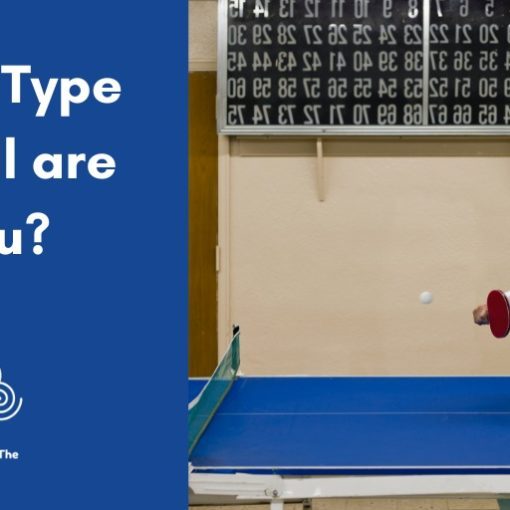Want to change?
Most people want to change without having to do the work. Give me the pill, wave the magic wand, say ‘abra ka dabra’ and then everything changes.
I don’t believe that Mental Health miracles happen overnight. Change and recovery take work and time.
In those that do make great strides in personal development and especially in recovery from Mental Illness, I have noticed that they have six crucial habits that empower their change. Activities that they repeat over and over again, so that step by step, millimeter by millimeter, and day by day the brain changes and recovery is empowered.
You don’t have to have a mental illness for these to be life-changing. Anyone can apply these and see steady change occur.
6 Things That I Have Noticed About People Who Change and Recover From Mental Illness
1. They make their bed every morning.
What? Seriously? Making your bed can change your life?
I picked this up from a talk by Admiral William H McRaven where he related the process of training U.S. Navy Seals.
Every morning Navy Seals have to make their beds perfectly. Every morning they start with purpose. They don’t drift into the day, but rather they start with a drilled in positive habit.
If you make your bed every morning you will have accomplished the first task of the day, it will give you a small sense of pride and will encourage you to another task and another and another. By the end of the day that one task completed will turn into many tasks completed .
Making your bed will also reinforce that the little things in life matter. If you can never do the little things right, you’ll never be able to do the big things right. If by chance you have a miserable day then you’ll come home to a bed that is made. That you made. A made bed gives you encouragement that tomorrow will be better. Admiral William H McRaven
There are habits that will set yourself up for the day. It doesn’t have to be exactly making your bed, but this sure helps. It may be other day starting habits of planning, meditating, praying, reading.
It’s starting the day with intention.
It’s saying to the brain ‘here is the starting line, let’s do it’
2. They make a bed for someone else.
Ok, I am playing with you on this one.
I don’t mean for you to go around making other peoples beds. They need to make their own!
What I am talking about here is fruitful labour. Finding something to do that has value to you. It may be paid employment, but it doesn’t have to be.
It’s finding that activity where you serve. It could be picking up rubbish on the sidewalk and in so doing, you silently serve your community.
It’s doing something that at the end of the day, when you climb into your made bed, you can say ‘I gave’ without any expectation of return, and just in this giving there is satisfaction in itself.
It is living with an external focus rather than an internal ‘its all about me’ focus.
Sitting on your butt, smoking, and drinking coffee all day will not help you to recover.
People who recover find an outlet, a place to contribute to society, a meaning for their existence.
Paid or unpaid, it doesn’t matter. It’s an activity that you find some value in and adds to others.
Download a copy of this post other plus bonus gifts
3. They get angry.
I’m not talking about walking around being abusive and violent.
What I am saying is that people who recover have an inner resolve in them that they are not just going to let life happen to them, they are going to take life on, attack it with all they can.
They turn all their energy they can muster into making life change. They live on purpose, not on a possibility.
Read more about this in my post I’m so angry that I’m going to …
4. They become passionate learners.
People who recover are passionate learners.
They read, listen, and hunt out wisdom. They want to devour knowledge and apply it to their lives.
They form habits which enable their learning. They go to the library, borrow books from friends (and return them), listen to podcasts, take classes.
All are helping the spongy grey matter of the brain to build new neurons and grow.
They battle with self-defeating attitudes and beliefs that echo in the brain about not being able to learn.
If they have trouble reading then they go and do literacy courses, they get audio books. They journal their discoveries.
Brick by brick the foundation of change takes place.
5. They set realistic goals.
Goals, ah, that word brings back to me memories of sitting with people with a bright new young Community Support Worker saying ‘Now we need to set some goals. Then observing the ‘client’ silently groaning within, yet again, at the cycle is once again repeated. A fresh young thing, straight out of College, wanting to save the world and having to follow the model.
OK putting this echoing memory to the side for a moment, it is important to set goals. The key to setting and achieving goals is that they must be significant to you. They must have value and importance to you. They cant just be a ‘tick the box’ activity for the other person. They must be owned by you completely.
A great way to set goals is to look back into recent history such as the past week and consider what gave you that sense of fruitfulness. An achievement that for you was significant. Then add 10 %.
So if reading for 30 minutes last week gave you a great boost, what is the likelihood that if you repeated it this week, you would get the same sense of fruitfulness? Quite high? So do it again, but this time add 10%. Read for another 5 minutes, something realistic that you know that you can achieve.
Try it, and let me know if it helps.
Over time, using this method of adding 10% can genuinely change your beliefs about yourself and radically empower growth.
6. They make STAN plans.
This is a little method I learned from the story of Daniel in the Bible. In the story, Daniel was in a crisis and was having to make some difficult choices. So he made a plan to achieve his goal.
Stan Plans are
- Simple to understand by all. Everybody that is involved can understand what is going to happen. It is not pages and pages of detail. It may just be a simple sentence.
- Timed for a Review. The plan has a time for it to run and then reviewed.
- Aimed at some thing of deep value. The plan is aimed at achieving something of deep value to the people involved. ‘It is important to achieve this because it would mean …’
- Negotiated with key others. Our plans will always involve others in helping to make them work. So we need to consult with others as to whether they are on board with our plan.
- What for you, from the list above, would be the most difficult to achieve? Why?






3 thoughts on “6 Things I Have Noticed About People Who Recover From Mental Illness”
Awesome,good news,thanks Barry,Mark
thanks Mark. Have a great day. Barry